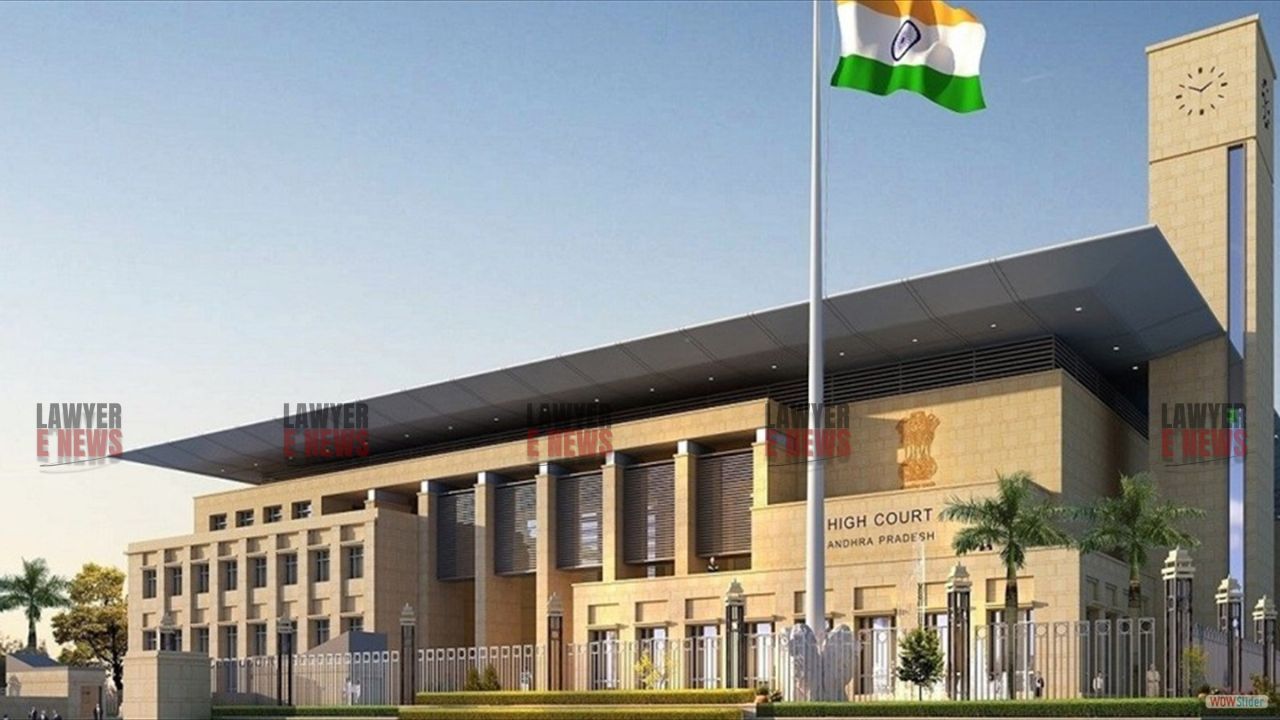-
by Admin
16 February 2026 1:47 PM



In a significant ruling, the Andhra Pradesh High Court dismissed a Second Appeal challenging the concurrent findings of the Trial Court and the First Appellate Court, which had dismissed the plaintiff’s suit for permanent injunction concerning a disputed land measuring 0.10 cents.
Justice T. Mallikarjuna Rao, presiding over the case Rejeti Sriramulu v. Avala Jamminaidu & Another, held that no substantial question of law was involved, and mere reappreciation of facts is not permissible under Section 100 of the Code of Civil Procedure, 1908 (CPC). The concurrent findings of fact by both courts were upheld, affirming that the plaintiff failed to establish ownership or possession over the disputed land.
"Second Appeal Under Section 100 CPC Maintainable Only When a Substantial Question of Law Exists"
The appellant/plaintiff sought permanent injunction over 0.10 cents of land, claiming that although he had sold 0.72 cents to the defendant under Ex.B1 (Sale Deed dated 05.05.1984), he had retained ownership of the remaining 0.10 cents. The Trial Court dismissed the suit, and the First Appellate Court upheld the decision, leading to the present Second Appeal under Section 100 CPC.
The Court reaffirmed the limited scope of second appellate jurisdiction, citing H.P. Pyarejan v. Dasappa (SC) and Union of India v. Ibrahim Uddin (SC), and held: “Under Section 100 CPC, interference with factual findings is unwarranted unless the conclusions are perverse or based on no evidence. The High Court cannot reappreciate evidence merely because another view is possible.”
Finding no error in the appreciation of evidence by the lower courts, the High Court concluded: “The findings of fact arrived at by both courts below are well-reasoned and based on evidence. No substantial question of law arises for consideration.”
"Plaintiff Failed to Prove Possession or Ownership of 0.10 Cents of Land"
The plaintiff’s claim was based on Ex.A2, which he contended proved his possession over the 0.10 cents of land. However, both lower courts found that Ex.A2 did not establish the plaintiff’s ownership, and witnesses PWs.2 and 3 failed to support the plaintiff’s case.
The High Court observed: “If the plaintiff had indeed retained 0.10 cents, his name should have been mentioned as a boundary owner in Ex.B1 (sale deed). The absence of such a mention indicates that the plaintiff had sold the entire extent.”
Additionally, the Court noted: “Ex.A2 makes no reference to the plaintiff retaining ownership of 0.10 cents of land. The burden to prove ownership and possession was on the plaintiff, which he failed to discharge.”
"Failure to Cross-Examine DWs.1 & 2 Weakened the Plaintiff’s Case"
The defendants testified (DWs.1 & 2) that the plaintiff had sold the entire land and did not retain any portion. The plaintiff failed to cross-examine these witnesses, which meant that their statements remained unchallenged.
The Court held: “The plaintiff’s failure to cross-examine DWs.1 and 2 amounts to an admission of their statements. In the absence of any rebuttal, the findings of the lower courts were rightly based on the unchallenged evidence.”
"No Perverse Findings – Lower Court Decisions Justified"
The Court rejected the plaintiff’s argument that the lower courts had misread the evidence, stating: “A Second Appeal cannot be entertained merely to reappreciate evidence. The findings of the lower courts are neither perverse nor contrary to law.”
Citing Hajazat Hussain v. Abdul Majeed (SC) and Vishwanath Agrawal v. Sarla Vishwanath Agrawal (SC), the Court reiterated that: “Findings of fact cannot be disturbed in a Second Appeal unless they are manifestly perverse or based on no evidence.”
"High Court Refuses to Interfere – Second Appeal Dismissed"
The Court ultimately dismissed the Second Appeal, holding that no substantial question of law arose. The Trial Court and the First Appellate Court’s concurrent findings were upheld, and the plaintiff’s claim for an injunction was rejected.
The judgment concluded: “Since the plaintiff has failed to establish his ownership or possession, and no substantial question of law arises, the Second Appeal is dismissed. No costs awarded.”
Date of decision: 18/02/2025
